Welcome to the abstract submission site of the Academic Surgical Congress!
Abstracts Submissions Open Tuesday, June 20, 2023 @ 12:00 AM ET | Login & Start!
Submissions Close on Friday, August 18, 2023 @ 11:59 PM ET
Dear Colleagues:
The 19th Annual Academic Surgical Congress (ASC) will take place February 6-8, 2024, at the Washington Hilton in Washington, DC. We were so proud of the outstanding 18th Annual ASC this past February and it was only possible with your engagement and each of you submitting your best work. Next February we are excited to gather together and share our work. Our continued growth and success depend on you!
The ASC is always the best venue to hear and discuss the latest scientific advances in all disciplines of academic surgery, and the quality of the meeting depends on the submission of your best work. The breadth of work being presented includes topics in education, clinical outcomes, health services research, as well as basic and translational science. We are actively working to again provide a strong program, which will be engaging and inspiring from start to finish.
The ASC, which is jointly sponsored by the Association for Academic Surgery and the Society of University Surgeons, will accept abstract submissions until the deadline on Friday, August 18, 2023. As in previous years, abstracts will be considered for presentation in full or quickshot oral format. Full oral talks will consist of an 8-minute presentation followed by 4-minutes of discussion. The quick shot talks consist of a 3-minute oral presentation, 5 slides maximum, and 2 minutes of discussion. Please note, we will not accept case studies this year.
Given our record-breaking abstract submission numbers over the past few years-and in order to maximize the number of participants in the ASC – we will continue to limit the number of abstracts that an individual first author may present to TWO presentations. There is no limit to the number of abstracts that may be submitted, and if more than two abstracts are accepted the two highest scoring abstracts will be selected for presentation. Please note that there is no limit on the number of abstracts in which an author may be included as a middle or senior author.
Abstracts accepted for presentation at the ASC are eligible for full manuscript submission to the Journal of Surgical Research (AAS) and Surgery (SUS). To be considered for AAS Awards, manuscripts must be submitted to the Journal of Surgical Research (JSR) by December 1, 2023. Authors must select AAS/ASC manuscript as the article type, include a reference to the ASC meeting in both the cover letter and just before the references. Otherwise, ASC manuscripts may be submitted to Surgery or the Journal of Surgical Research (JSR) by March 1, 2024 for special meeting related consideration.
We hope that each of you will make plans to join us in person in Washington, DC next year!
With very best wishes,
Ankush Gosain, MD, PhD, FACS, FAAP
SUS Publications Chair
ASC Program Chair
Vikas Dudeja, MD, FACS
AAS Recorder & AAS Program Committee Chair
ASC Program Chair

Presented by:
Laura Graham, PhD
Health Services Research Economist
Stanford-Surgery Policy Improvement Research and Education Center
Bio
Laura is a health services researcher with a wide variety of experience in data management and analysis, including large multi-center health services and outcomes research studies, provider survey studies, and laboratory-oriented research. Her research interest includes surgical outcomes research, informatics, and implementation science to translate evidence into practice. The bulk of her research experience is centered around the use and analysis of large administrative datasets collected by the Veterans Health Administration. She has been involved in a multitude of Health Services Research & Development funded and unfunded studies using these administrative data to assess surgical outcomes.
PCSA 2024 CALL FOR ABSTRACTS
PCSA is collecting abstract submissions for the PCSA Annual Meeting which will be held at the Westin Rancho Mirage Golf Resort & Spa, February 9-12, 2024.
Abstracts will be accepted from June 1st through September 5, 2023 at 10:00 am PDT.
AUTHORS WILL NEED TO CREATE THEIR SPEAKER PROFILE FOR SUBMISSIONS THROUGH THIS LINK.
SUBMISSION AND PORTAL INSTRUCTIONS AND FAQ MAY BE VIEWED HERE.
Log into your portal account here at any time after creating your profile.
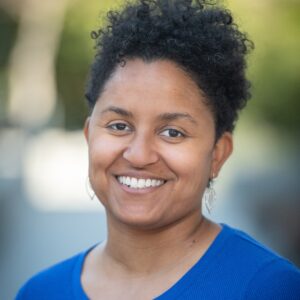
Presented by:
Kristen Davis, MPH, CAPM
Research Project Manager
S-SPIRE Center, Dept. of Surgery
Title: “Updating Your NIH Biosketch and Other Support Forms”
Bio: Kristen Davis-Lopez, MPH, CAPM is the Research Project Manager at the S-SPIRE Center. She has a background in biology as well as public health. She supports multiple principal investigators with their current funded projects as project manager. Kristen also assists with the grant submission process within the Department of Surgery acting as a liaison with the Research Management Group.
For Zoom dial-in instructions, please contact Ana Mezynski at mezynski@stanford.edu
General Surgery Former PD Resident:
Dr. Kirbi Yelorda
Dr. Jeff Choi
Dr. Wilson Alobuia
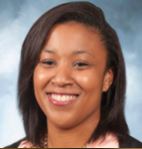
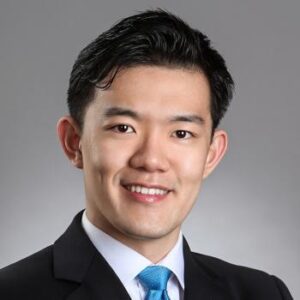
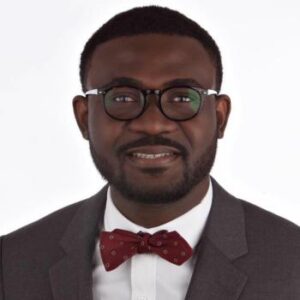
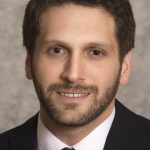
Presented by: Nathaniel Breg, BD-STEP postdoctoral fellow at the VA Palo Alto
Talk Title: “The Effects of Changing Capitated Payments on Health Care Staffing, Contracting, Utilization, and Quality: Evidence from a Natural Experiment in the Veterans Health Administration.”
Bio: Nathaniel Breg is a BD-STEP postdoctoral fellow at the VA Palo Alto, with a joint appointment with the Department of Health Policy at Stanford. His research focuses on health care provider decision-making. He completed his Ph.D. is in public policy and management with a concentration in applied economics at Carnegie Mellon University in 2022. He previously worked on projects for CMS as an analyst at RTI International.
Presented by: Kenneth Nieser, PhD, Postdoctoral Scholar, General Surgery, Department of Surgery, Stanford University.
Talk Title: “TBD”
Bio: Ken Nieser is a postdoctoral research fellow through the Big Data-Scientist Training Enhancement Program (BD-STEP) at the Palo Alto VA and in the Department of Surgery, Stanford School of Medicine. Ken received a BA in Physics and Mathematics from Swarthmore College and a PhD in Epidemiology with a minor in Statistics from the University of Wisconsin-Madison. During his PhD, Ken developed and applied statistical methods for improving algorithmic fairness of data analyses used to inform screening and treatment of mental illnesses. These projects included development of an approach for detecting sample subsets with differential psychological symptom patterns and a sample representation reweighting method for improving the precision of subgroup-specific treatment effect estimation.
